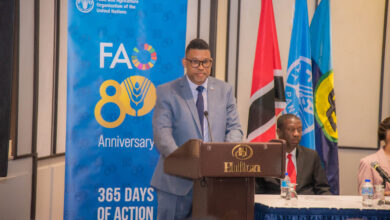Statisticians from Member States of the Caribbean Community (CARICOM) began a 4-day meeting in Georgetown, Guyana today Monday 10th January, 2000.
High on the agenda at this the Twenty-Fourth Meeting of the Standing Committee of Caribbean Statisticians are population and housing censuses matters, social and economic statistics relating to matters such as gender, external trade, and the Caribbean Statistical Training Programme. Special topics slated on the agenda are a draft manual on trade in services, and environmental statistics. Participants will also address the implementation of the UN (1993) Revised System of National Accounts in the Region.
The Standing Committee of Caribbean Statisticians had proposed the conduct of the Year 2000 Round of Population and Housing Censuses in Member States as a timely undertaking which marks the beginning of the Twenty-First Century.
In a brief address at the opening session, CARICOM's newly-appointed Assistant Secretary-General, Foreign and Community Relations, Mr. Albert Ramdin, underscored the need for “sound statistics at both the national and regional levels as they assist our governments and other decision-makers to assess, with a greater degree of accuracy, the overall impact of developmental policies and programmes, and provide means for enhancing their capabilities to formulate and implement more effective strategies.”
Referring to the need for the expansion of statistical data, Mr. Ramdin said that “with the break of the Twenty-First Century, and the priority emphasis to be placed on human development, it is time to give urgent consideration to the production of relevant non-traditional statistics, given the emergence of certain social and economic issues that affect our people.”
The non-traditional areas include statistics relating to the environment, poverty, the availability and adequacy of health, education and other social services; drug abuse, and the status of children, the elderly, women, the handicapped and other special groups.
In addition to making the Year 2000 censuses more user-relevant, they are being geared to provide results to users within a shorter time frame.





